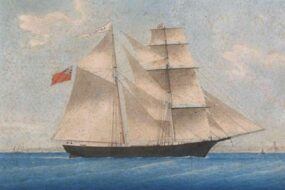Can you imagine a man who conquered nearly a third of the known world, leaving behind a trail of legend, mystery, and unanswered questions? A warrior king who defied the odds, demolished empires, and spread Greek culture far and wide, creating one of the most fascinating and enigmatic figures in history. Alexander III of Macedon, commonly known as Alexander the Great, is a name that has echoed through the ages, inspiring awe, curiosity, and endless debate.But what drove this extraordinary individual to achieve such unparalleled success, and what secrets lie behind his remarkable story?
In the scorching summer of 356 BCE, in the ancient kingdom of Macedon, a child was born who would shake the foundations of the world. Alexander’s parents, King Philip II and Queen Olympias, were a powerful and complex couple, with a relationship that would have a profound impact on their son’s destiny. Philip, a shrewd and enterprising leader, had unified the fractious city-states of Greece under his rule, while Olympias, a member of the Molossian royal family, brought a fierce and unyielding spirit to the union. As Alexander grew up, he was exposed to the finest education, tutored by the great philosopher Aristotle himself, and trained in the art of warfare by his father. But it was the mysterious and often tumultuous relationship between his parents that forged the steel in his soul.As Alexander matured, he became increasingly drawn into the world of politics and war, accompanying his father on campaigns and learning the intricacies of statecraft. But the relationship between Philip and Alexander was complex, to say the least. Philip’s multiple marriages and numerous offspring created a web of intrigue and rivalry, with Alexander’s position as heir to the throne constantly threatened. The tension between father and son was palpable, and the young Alexander soon found himself at the center of a maelstrom of court politics. When Philip was assassinated in 336 BCE, under mysterious circumstances, Alexander’s ascension to the throne was swift and decisive. He was just 20 years old, but the die had been cast, and his destiny was forever sealed.
With his father’s death, Alexander inherited a kingdom on the brink of chaos, as the various city-states of Greece and the surrounding regions began to chafe against Macedonian rule. But Alexander was not one to be deterred. with a fierce determination and an unshakeable confidence, he set out to assert his authority, quelling rebellions and securing the borders of his kingdom. his military campaigns were a masterclass in strategy and bravery,as he swept across Asia Minor,leaving a trail of defeated enemies in his wake. The legend of Alexander the Great was beginning to take shape, and the world would never be the same again.
as Alexander’s empire expanded, he encountered a diverse array of cultures, from the elegant cities of Greece to the mystical lands of Egypt and Babylon. He was drawn to the mystique of the East, adopting elements of Persian dress and customs, and even claiming to be the son of zeus-Ammon, a fusion of Greek and Egyptian deities. This syncretic approach to culture and religion would become a hallmark of his reign, as he sought to create a unified and cosmopolitan empire. But the farther he traveled, the more he was confronted with the challenges of ruling over a vast and disparate territory. The logistics of maintaining a massive army, managing a complex administrative system, and balancing the competing demands of his various subject peoples were daunting, to say the least.
Despite these challenges, Alexander pressed on, driven by an insatiable curiosity and a hunger for conquest. He marched into the unknown, facing down fierce opponents and overcoming seemingly insurmountable obstacles.The siege of Tire, the battle of Gaugamela, and the conquest of Persepolis were just a few of the many milestones on his journey. And yet, as his empire grew, so too did the tensions within it. the relationships between Alexander and his companions, his generals, and even his own family became increasingly strained.The whispers of paranoia and megalomania began to circulate, as Alexander’s grip on reality seemed to slip.
some of the most notable conquests and achievements of Alexander the Great include:
* Conquering a vast portion of the known world,creating one of the largest empires in history
* Defeating the Persian Empire,which had been the dominant power in the region for centuries
* spreading greek culture,language,and philosophy throughout his empire
* Founding over 70 cities,including Alexandria,which would become a major center of culture and learning
* Adopting and promoting a syncretic approach to culture and religion,blending Greek,Persian,and Egyptian traditions
The final years of Alexander’s life were marked by an aura of mystery and foreboding. He became increasingly isolated,surrounding himself with a coterie of loyal followers and sycophants. The conquest of India, a land of fabled riches and exotic wonders, proved to be a turning point, as his army, weary and homesick, refused to march further. Alexander was forced to turn back, but the consequences of his decision would be far-reaching. As he made his way back to Babylon, he fell ill, possibly due to poisoning or disease. The rumors of a plot to kill him swirled, with some pointing to his own generals or even his family members as the culprits. The truth, much like Alexander himself, remained shrouded in mystery.
On June 10, 323 BCE, Alexander the Great died, leaving behind a vast and fragmented empire. The succession crisis that followed was a complex and bloody affair, as his generals and companions fought for control of the territories he had conquered. The Wars of the Diadochi,as they came to be known,would rage on for decades,shaping the Hellenistic world and leaving a lasting legacy. The figure of Alexander, though, continued to captivate and inspire, as his legend spread far and wide. He became a cultural touchstone, a symbol of power, ambition, and the unrelenting pursuit of greatness.
To this day,the story of Alexander the Great remains an enigma,a testament to the complexities and contradictions of human nature. Was he a visionary leader, a brilliant strategist, or a ruthless tyrant? The answer, much like Alexander himself, remains elusive, lost in the mists of time. But one thing is certain: his impact on the world was profound, shaping the course of history and leaving behind a legacy that continues to fascinate and inspire us to this day.
#AlexanderTheGreat #InfographicStory #WorldHistory #AncientCivilizations #MysteriousDeaths #ConquestAndEmpire #HistoricalFigures #DidYouKnow #truestory #HistoryNerd #GlobalFigures #LegendaryLeaders








